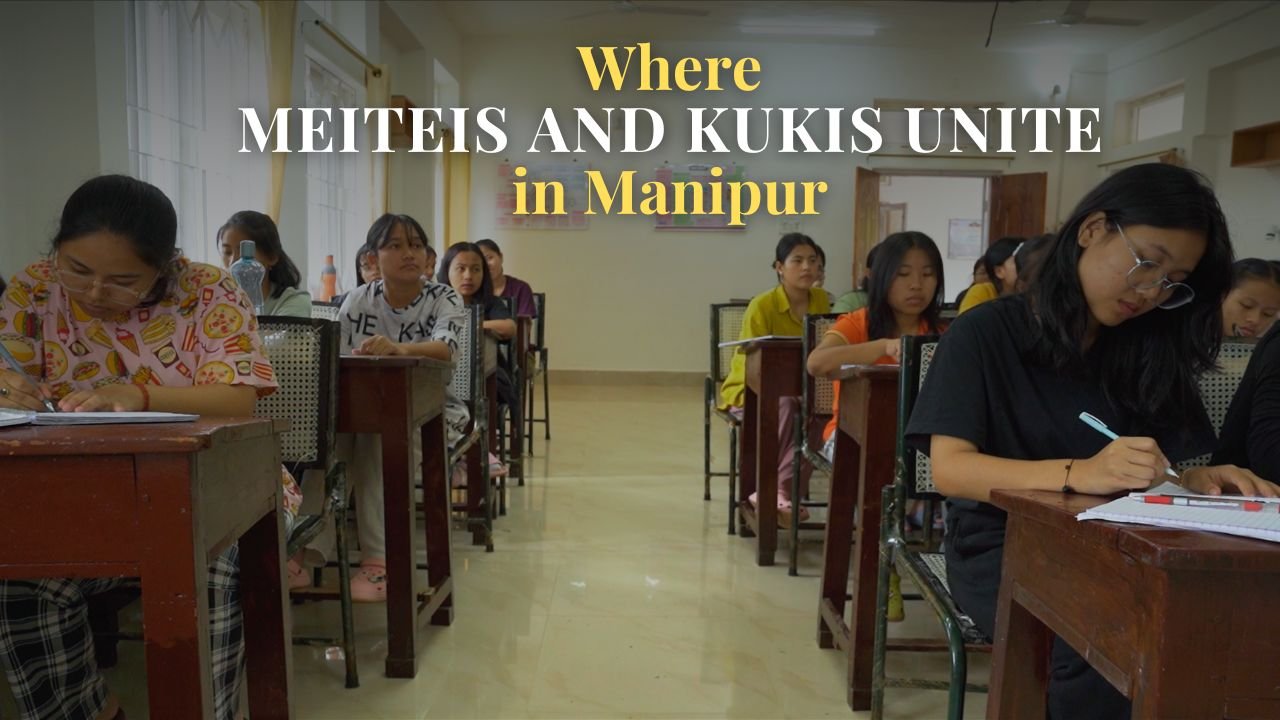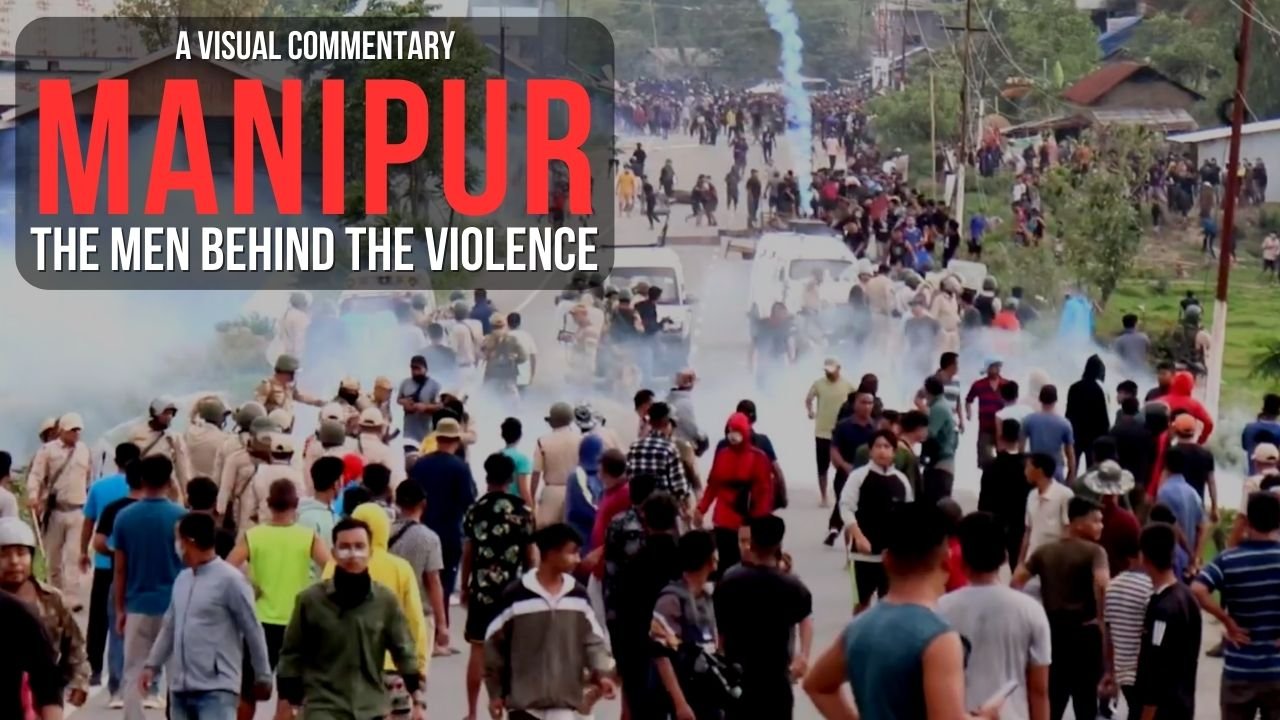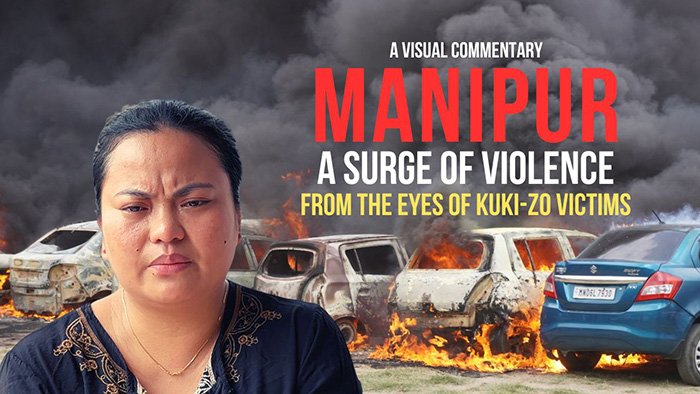
DINNER WITH A KUKI-ZO LEADER | Demand for Autonomy
It's been over 16 months since ethnic violence erupted in the northeastern state of Manipur, involving the majority Meitei community and the Kuki-Zo tribes. The resulting divide is so severe that an unofficial border has effectively separated the two communities within the state. As the violence carries on, efforts by the state and central governments to resolve the crisis appear minimal, and the future remains uncertain. To gain insight into what lies ahead, host Harshita Rathore sat down for dinner with a Kuki-Zo leader, Dr. Chinkholal Thangsing, who heads the Kuki People’s Alliance. Affectionately known as Dr. Lal, he proposes a solution he believes could potentially lead to lasting peace.

Where MEITEIS AND KUKIS UNITE in Manipur
Amid the 15-month ethnic divide between the majority Meitei community and Kuki-Zo tribes in Manipur, there is a place where youth from both groups come together for their future and education. In a special educational project run by the NGO NIEDO and the Assam Rifles, a paramilitary force, young girls and boys from both groups unite, believing that leaving the past behind and focusing on the future is key to restoring peace in violence-stricken Manipur. Despite the state’s deep divisions, these students hold onto the hope of one day reconnecting with friends from other communities.

DEATH IN A RELIEF CAMP | The Impacts of Prolonged Displacement in Manipur
Neikochin is among the 67,000 individuals displaced by ethnic violence in Lamka, as local residents of Manipur's Churachandpur district prefer to call this region. A member of the minority Kuki-Zo tribe, she has taken refuge in one of the 115 relief camps established across the district. Basic supplies are available in the camps, but the extended displacement, combined with minimal government aid, has inflicted significant emotional and physical suffering. This crisis has resulted in the deaths of more than 100 displaced individuals, including many children. Neikochin’s 20-year-old son, Haovingly, was among those who died.

LIFE IN LAMKA | Economic Impact of Violence on Kuki - Zo Community in Manipur
Benjamin, a Kuki-Zo man and father of five in Manipur’s Churachandpur district, struggles daily to meet his family's needs amid ongoing ethnic violence. The unrest, which began over a year ago, has severely impacted the state's economy, with retail inflation soaring to 11.63% in November 2023, compared to the national average of 5.55%. The prices of essential goods have skyrocketed in this border district, which remains cut off from the commercial hub of the Meitei-dominant Imphal region, about 60 km away. All goods now come through mountainous terrain, covering a distance of over 800 km. How is Benjamin’s family – and other residents – surviving this economic crisis?

RELUCTANT WARRIORS | Why Manipur's Youth is Picking up Arms
Sawmte, a 17-year-old from the Kuki-Zo tribe in Manipur, is deeply affected by the ethnic violence that erupted involving the majority Meitei community and the Kuki-Zo tribal people on May 3, 2023. On witnessing the attacks on their community by Meitei extremist groups, who were allegedly joined by sections of state police, the Kuki-Zo youth – including some teenagers like Sawmte – have put their dreams on hold to defend their tribal homeland. The ongoing struggle casts a long shadow over Manipur’s future, threatening to shape a generation defined by conflict and division.

MANIPUR | The Men Behind Violence In Manipur
Newsreel Asia revisits Manipur, a state in Northeast India, now besieged by near-daily attacks since May 3, 2023. Moving from survivors' homes to violence epicentres, this mini-documentary investigates alarming accusations that implicate both local extremist factions and state security forces in the attacks on the Kuki-Zo tribal community.

MANIPUR | A Surge of Violence
Kai Neu, a nurse, and Thanghoulal, a driver, represent many from the Kuki-Zomi tribes who have suffered ceaseless violence since May 3, 2023, in Manipur, a state in Northeast India. They inhabit Churachandpur district, which remained inaccessible with no Internet connectivity either.
